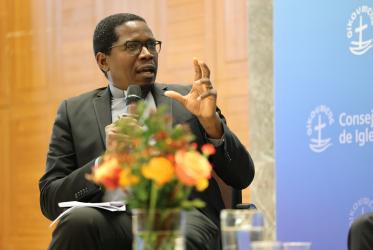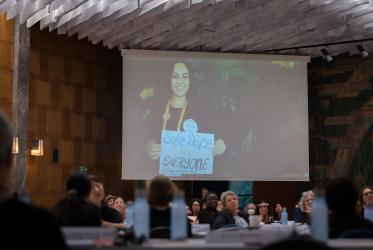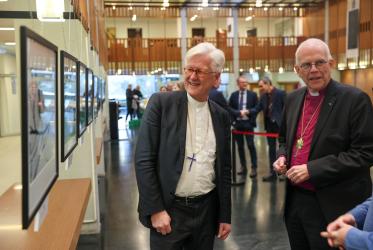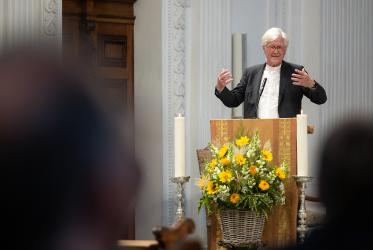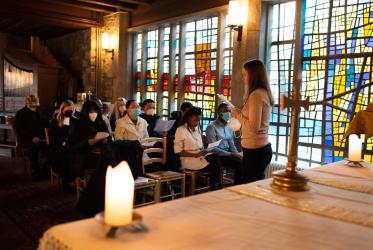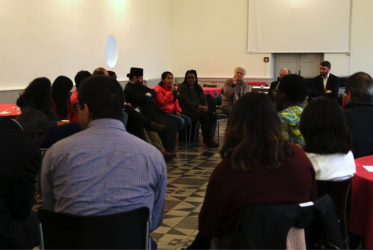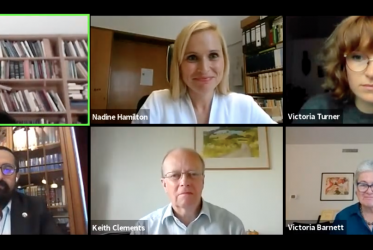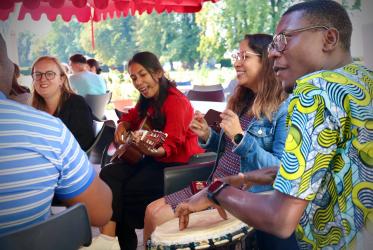Displaying 1 - 20 of 35
07 February 2024
“Every Picture Tells A Story” photo exhibit opens
30 November 2023
WCC moderator calls for a “reformation of hope” based on love
10 October 2023
Chateau de Bossey thriving as lives are transformed
08 September 2023
Christ’s Love (Re)moves Borders – GETI 2022 in images
13 September 2022
Uppsala 1968: The times, they were a’changing
06 September 2022
New academic year underway at Ecumenical Institute in Bossey
13 September 2021
